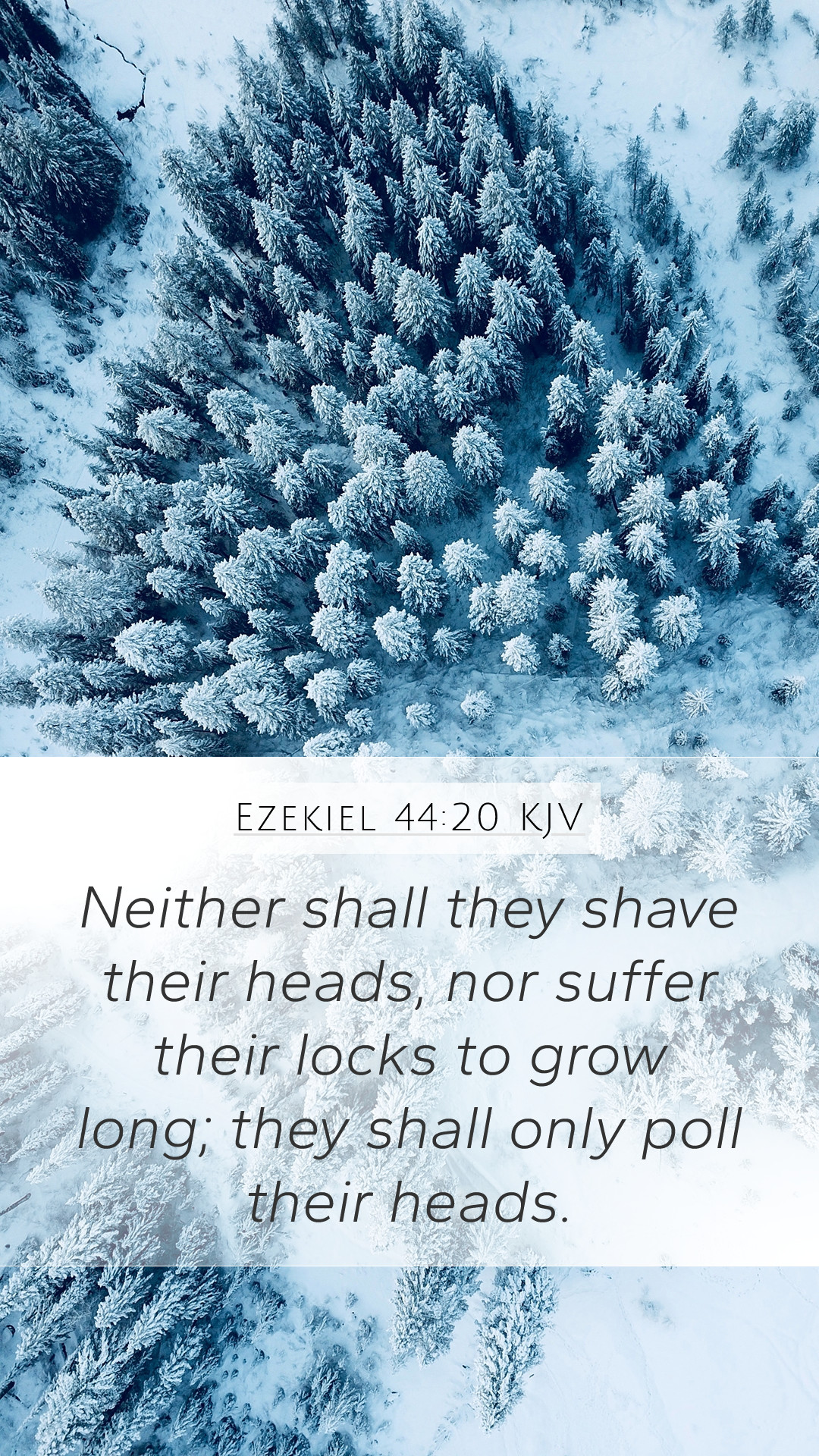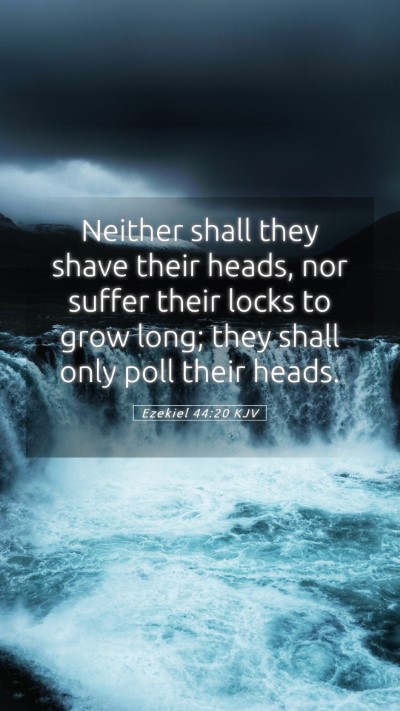Ezekiel 44:20 - Bible Verse Commentary and Meaning
The verse Ezekiel 44:20 states:
"Neither shall they shave their heads, nor suffer their locks to grow long; they shall only poll their heads."
This scripture provides profound insights regarding the conduct expected from the priests in the temple. To fully grasp its implications, we can delve into a summary of various public domain commentaries, including those by Matthew Henry, Albert Barnes, and Adam Clarke.
Overview of Ezekiel 44
The book of Ezekiel addresses various themes, including judgment, restoration, and the future temple's regulations. Chapter 44 particularly focuses on the duties and purity required of the Levitical priests as they serve in the temple. Ezekiel, as a prophet, provides instructions meant to signify the importance of holiness and proper conduct in worship.
Insights from Commentaries
Matthew Henry's Commentary
Henry emphasizes the ritual purity of the priests. He notes that the prohibition against shaving their heads or allowing their hair to grow unkempt reflects a balance between two extremes. Such regulations signify the need for moderation and respect for their holy office. The act of managing one’s hair, according to Henry, symbolizes a broader call to discipline in spiritual life.
Albert Barnes' Notes
Barnes elaborates on the spiritual symbolism behind the priests’ appearance. He suggests that hair in ancient cultures often symbolized vitality and strength. The commandment here illustrates a commitment to God’s service above personal vanity. By keeping their hair appropriately, the priests acknowledge their role as mediators between God and the people and reflect their devotion to the sacred tasks assigned to them.
Adam Clarke's Commentary
Clarke provides historical context, mentioning that priests in different cultures had various customs regarding hair. He argues that the specific commands given to the Israelite priests set them apart from the practices of surrounding nations. Clarke stresses that this separation exemplifies the holiness required of those dedicated to God’s service. He also points out that these instructions serve as reminders of the need for continual renewal and cleansing, paralleling the spiritual journey of believers.
Key Themes in the Verse
- Holiness and Purity: The priests’ adherence to these rules highlights the broader biblical theme of holiness in service to God.
- Discipline in Worship: The regulations compel both physical and spiritual discipline, prompting worshippers to focus on their relationship with God.
- Distinctiveness: These guidelines emphasize the distinct role of priests compared to other groups, marking their sacred duty.
Application of the Verse Today
In contemporary context, Ezekiel 44:20 teaches us about maintaining a spirit of reverence and holiness in our own lives. It invites us to reflect on how we conduct ourselves in worship and service. Just as the priests were to embody discipline, we too are called to align our appearance and actions with the values of our faith.
Related Bible Verses
- Ezekiel 42:14 - Discusses the purification of the priests.
- Leviticus 10:6-7 - Addresses the importance of proper priestly conduct.
- 1 Peter 2:9 - Describes believers as a royal priesthood.
- Exodus 28:40 - Outlines the garments of the priests as representations of holiness.
- Hebrews 5:4 - Highlights the divine appointment of priests.
Conclusion
Understanding Ezekiel 44:20 is crucial for grasping the broader message of dedicated service and holiness in biblical worship. The standards set forth serve as both a historical reminder and a contemporary call to embody a lifestyle reflective of God’s presence. As we engage in Bible study, may we seek to interpret these verses not only in context but also in application, enhancing our day-to-day lives in faith.
For those in Bible study groups, this verse can serve as a springboard for discussions about holiness and the responsibilities we hold as followers of God. Properly analyzing and interpreting such verses can significantly contribute to our Bible study insights and deepen our understanding of Scripture.


